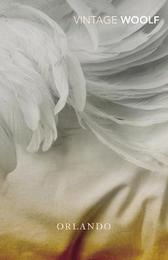
|
Orlando
Paperback / softback
Main Details
| Title |
Orlando
|
| Authors and Contributors |
By (author) Virginia Woolf
|
|
Introduction by Margaret Reynolds
|
|
Introduction by Peter Ackroyd
|
| Physical Properties |
| Format:Paperback / softback | | Pages:256 | | Dimensions(mm): Height 198,Width 129 |
|
| Category/Genre | Modern and contemporary fiction (post c 1945) |
|---|
| ISBN/Barcode |
9780099478287
|
| Classifications | Dewey:823.912 |
|---|
| Audience | |
|---|
|
Publishing Details |
| Publisher |
Vintage Publishing
|
| Imprint |
Vintage Classics
|
| Publication Date |
2 December 2004 |
| Publication Country |
United Kingdom
|
Description
As his tale begins, Orlando is a passionate young nobleman whose days are spent in rowdy revelry, filled with the colourful delights of Queen Elizabeth's court. By the close, he will have transformed into a modern, thirty-six-year-old woman and three centuries will have passed. Orlando will witness the making of history from its edge, dressing in the flamboyant fashions of each day, following passing customs, and socialising with celebrated artists and writers. Orlando's journey will also be an internal one - he is an impulsive poet who learns patience in matters of the heart, and a woman who knows what it is to be a man. Virginia Woolf's most unusual and fantastic creation, Orlando is a funny, exuberant tale that examines the very nature of sexuality.
Author Biography
Virginia Woolf was born in London in 1882, the daughter of Sir Leslie Stephen, first editor of The Dictionary of National Biography. After his death in 1904 Virginia and her sister, the painter Vanessa Bell, moved to Bloomsbury and became the centre of 'The Bloomsbury Group'. This informal collective of artists and writers which included Lytton Strachey and Roger Fry, exerted a powerful influence over early twentieth-century British culture. In 1912 Virginia married Leonard Woolf, a writer and social reformer. Three years later, her first novel The Voyage Out was published, followed by Night and Day (1919) and Jacob's Room (1922). These first novels show the development of Virginia Woolf's distinctive and innovative narrative style. It was during this time that she and Leonard Woolf founded The Hogarth Press with the publication of the co-authored Two Stories in 1917, hand-printed in the dining room of their house in Surrey. Between 1925 and 1931 Virginia Woolf produced what are now regarded as her finest masterpieces, from Mrs Dalloway (1925) to the poetic and highly experimental novel The Waves (1931). She also maintained an astonishing output of literary criticism, short fiction, journalism and biography, including the playfully subversive Orlando (1928) and A Room of One's Own (1929) a passionate feminist essay. This intense creative productivity was often matched by periods of mental illness, from which she had suffered since her mother's death in 1895. On 28 March 1941, a few months before the publication of her final novel, Between the Acts, Virginia Woolf committed suicide.
ReviewsOrlando is the wittiest little book, a pleasure: it makes me laugh every time I read it Undoubtedly Virginia Woolf's most intense and one of the most singular [novels] of our era
|